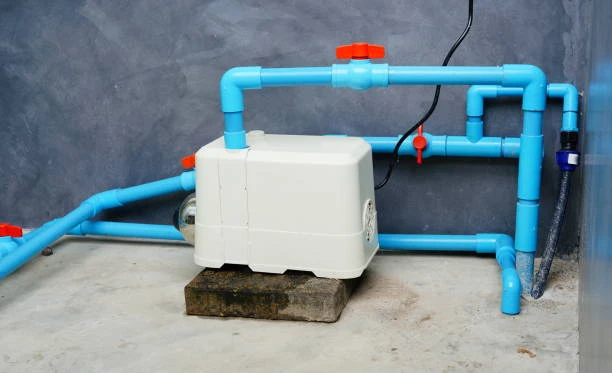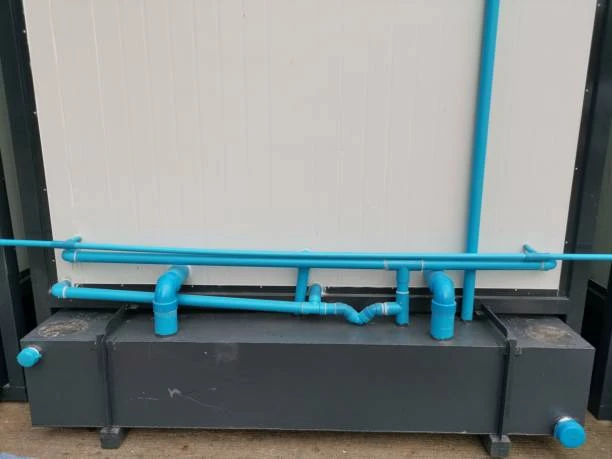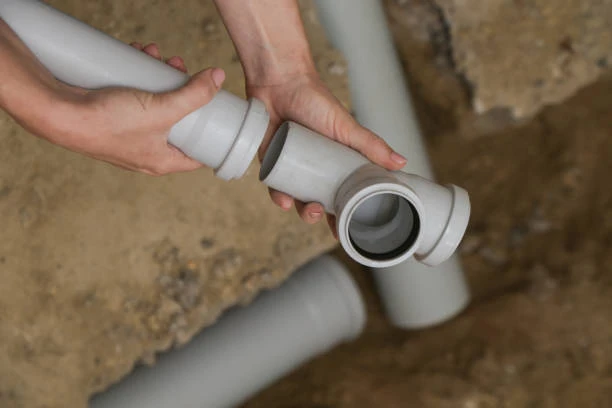The Growing Popularity of Plastic Water Supply Pipe Systems
In recent years, the use of plastic water supply pipe systems has seen a significant increase in various sectors, including residential, commercial, and industrial applications. This rise can be attributed to several key factors, including speed of installation, strength under pressure, and enhanced safety features. This article will explore the advantages of plastic water supply pipes, the reasons for their growing popularity, and the implications for the future of plumbing and water management.
Understanding Plastic Water Supply Pipe
Plastic water supply pipes are primarily made from materials such as PVC (polyvinyl chloride), PE (polyethylene), and PP (polypropylene). Each of these materials offers unique benefits that cater to different needs and applications.
1. Types of Plastic Water Supply Pipe
- PVC Pipes: Known for their rigidity and resistance to corrosion, PVC pipes are commonly used in water supply and drainage systems. They are lightweight and easy to handle, making them a popular choice for contractors.
- PE Pipes: Polyethylene pipes are highly flexible, making them suitable for both above-ground and underground installations. Their resistance to impact and stress makes them ideal for a variety of applications, including agricultural and municipal water supply.
- PP Pipes: Polypropylene pipes offer high chemical resistance and thermal stability, making them suitable for hot water applications and environments where aggressive chemicals are present.
Advantages of Plastic Water Supply Pipe Systems
1. Speed of Installation
One of the most significant advantages of plastic water supply pipe systems is their speed of installation. The lightweight nature of these materials allows for quick handling and transportation, reducing labor costs and project timelines. Additionally, many plastic pipes can be joined using simple methods, such as solvent welding or heat fusion, which further streamlines the installation process.
2. Strength and Durability
Plastic pipes are designed to withstand high pressures and external stresses. For instance, HDPE (High-Density Polyethylene) pipes exhibit impressive tensile strength, making them suitable for demanding applications. Unlike traditional materials, such as metal or concrete, plastic pipes do not corrode, ensuring a longer service life and reduced maintenance needs.
3. Resistance to Environmental Factors
Plastic water supply pipes are resistant to various environmental factors, including chemicals, UV radiation, and temperature fluctuations. This resilience allows manufacturers to use these pipes in diverse applications without compromising performance. For example, chemical processing plants widely use PVC pipes because they can handle aggressive substances.
4. Safety Features
Safety is a paramount concern in water supply systems, and plastic pipes offer several advantages in this area:
- Non-Toxic Materials: Many plastic pipes are made from non-toxic materials, ensuring that no harmful chemicals leach into the water supply. This is particularly important for drinking water applications.
- Reduced Risk of Leakage: The seamless joints and flexible nature of plastic pipes help minimize the risk of leaks, which can lead to contamination and costly repairs.
- Fire Resistance: Certain types of plastic pipes, such as CPVC (Chlorinated Polyvinyl Chloride), have enhanced fire resistance, providing added safety in residential and commercial buildings.
Economic Benefits of Plastic Water Supply Pipe
1. Cost-Effectiveness
Plastic water supply pipe systems often present a lower initial investment compared to traditional materials. The reduced labor costs associated with faster installation, combined with the long-term savings from lower maintenance and repair expenses, make plastic pipes a cost-effective choice for many projects.
2. Longevity
The durability of plastic pipes translates to a longer lifespan. While metal pipes may corrode and require replacement or significant maintenance, plastic pipes can last for decades without significant degradation. This longevity not only reduces the frequency of replacements but also contributes to overall cost savings over time.
3. Lightweight Nature
The lightweight nature of plastic pipes simplifies transportation and handling, further reducing project costs. Contractors can easily maneuver these pipes on-site, and they often incur lower transportation costs compared to heavier materials.

Environmental Impact of Plastic Water Supply Pipe
1. Recyclability
Manufacturers often make plastic pipes from recyclable materials, contributing to a circular economy. When these pipes reach the end of their lifespan, many manufacturers can reprocess them into new products, reducing waste and the environmental footprint associated with pipe production.
2. Lower Carbon Emissions
The manufacturing process for plastic pipes generally involves lower carbon emissions compared to metal pipes. Additionally, the lightweight nature of plastic reduces fuel consumption during transportation, further contributing to environmental sustainability.
3. Efficient Water Management
Plastic water supply pipes facilitate efficient water management systems, reducing leakage and ensuring a reliable supply of water. This efficiency is critical in addressing global water scarcity challenges and promoting responsible water usage.
Applications of Plastic Water Supply Pipe
Plastic water supply pipes are versatile and can be used in a variety of applications, including:
1. Residential Plumbing
In residential construction, plastic pipes are widely used for water supply and drainage systems. Their ease of installation and long lifespan make them a popular choice among builders and homeowners.
2. Commercial Construction
Commercial buildings often require robust plumbing systems, and plastic pipes meet these demands with their strength and durability. They are commonly used in offices, shopping centers, and industrial facilities.
3. Agricultural Applications
In agriculture, farmers use plastic water supply pipes for irrigation systems to ensure efficient water distribution and management. Their flexibility and resistance to soil degradation make them ideal for outdoor applications.
4. Municipal Water Supply
Many municipalities are transitioning to plastic pipes for their water supply systems. The reliability and longevity of plastic pipes make them an excellent choice for ensuring a safe and consistent water supply for communities.
Challenges Facing Plastic Water Supply Pipe Systems
While the rise of plastic water supply pipes is promising, several challenges need to be addressed:
1. Perception and Awareness
Despite the benefits, there is still a perception among some contractors and engineers that traditional materials are superior. Increasing awareness about the advantages of plastic pipes is essential for broader adoption.
2. Regulatory Hurdles
Navigating the regulatory landscape can be complex for plastic pipe manufacturers. Compliance with local and national standards is crucial, and companies must stay informed about changes in regulations.
3. Environmental Concerns
While many plastic pipes are recyclable, concerns about plastic pollution and the environmental impact of production processes persist. Manufacturers must continue to prioritize sustainability in their operations.
The Future of Plastic Water Supply Pipe Systems
The future looks bright for plastic water supply pipe systems, driven by several trends:
1. Technological Advancements
Advancements in materials science and manufacturing technologies will continue to enhance the performance of plastic pipes. Innovations may lead to new formulations that improve durability, chemical resistance, and sustainability.
2. Growing Demand for Sustainable Solutions
As industries and consumers prioritize sustainability, the demand for eco-friendly products, including plastic pipes, will likely increase. Companies that invest in sustainable practices will be well-positioned to thrive in the market.
3. Expansion of Plastic Water Supply Pipe Applications
The versatility of plastic pipes means they can be used in an expanding array of applications. Continued research and development will uncover new uses, particularly in areas such as green infrastructure and smart water management.
4. Increased Collaboration
Collaboration among manufacturers, contractors, and regulatory bodies will be essential to address challenges and promote best practices in the industry. Sharing knowledge and resources can lead to innovations and improved safety standards.
Conclusion
The rise of plastic water supply pipe systems is a testament to their speed, strength, and safety. With numerous advantages, including cost-effectiveness, durability, and environmental sustainability, plastic pipes are becoming the preferred choice for a variety of applications. As the industry continues to evolve by embracing technological advancements and sustainable practices, plastic water supply pipes will play a pivotal role in the future of plumbing and water management.
FAQs
1. What are the main advantages of plastic water supply pipes?
Plastic water supply pipes are lightweight, cost-effective, durable, and resistant to corrosion and chemicals, making them suitable for various applications.
2. How do plastic pipes compare to traditional materials?
Plastic pipes often offer lower installation costs, reduced maintenance, and longer lifespans compared to traditional materials like metal and concrete.
3. What types of plastic are commonly used for water supply pipes?
Common types include PVC (polyvinyl chloride), PE (polyethylene), and PP (polypropylene), each with unique properties suited for different applications.
4. Are plastic water supply pipes environmentally friendly?
Yes, many plastic pipes are recyclable, and their production typically results in lower carbon emissions compared to traditional materials.
5. What applications benefit from plastic water supply pipe systems?
Many builders and plumbers use plastic pipes in residential plumbing, commercial construction, agricultural irrigation, and municipal water supply systems.


















